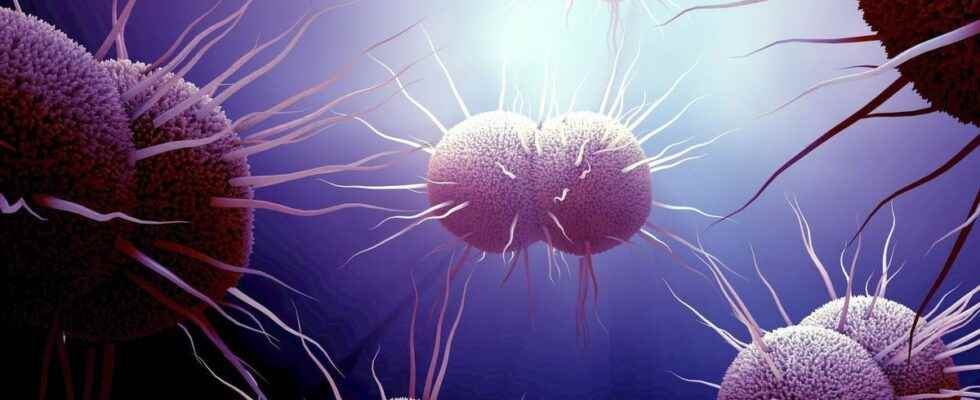Published on
Updated
Reading 2 mins.
For the first time, American scientists report having discovered two cases of gonorrhea that are particularly resistant to antibiotics. How to treat this type of infection? The explanations of Pr Eric Caumes, infectiologist and consultant at the Hôtel-Dieu in Paris.
Globally, sexually transmitted infections (STIs) are on the rise, due to an increase in sexual activity during the pandemic, coupled with a decrease in testing in the general population. Two elements that have actually favored the spread of STIs. And in general, these infections are increasingly resistant to antibiotics.
Two cases of antibiotic-resistant gonorrhea
In the United States, health authorities report having discovered for the first time two cases of gonorrhea in the state of Massachusetts, which appear to have reduced susceptibility to all types of antibiotics available to treat them.
In addition to reduced susceptibility to ceftriaxone, identified gonorrhea strains also showed reduced susceptibility to cefixime and azithromycin. Additionally, the strains were resistant to ciprofloxacin, penicillin, and tetracycline.
Globally, antibiotic-resistant infections kill around 700,000 people every year. This number could reach 10 million deaths per year by 2050 if measures are not taken to stop the spread of these resistant organisms.
What is gonorrhea?
Gonorrhea is one of the most commonly diagnosed sexually transmitted infections in the United States. It is caused by bacteria Niesseria gonorrhoeaewhich can infect the mucous membranes of the genitals, rectum, throat and eyes.
The first symptoms of gonorrhea are often painful urination (hence its nickname “hot piss”), abdominal or pelvic pain, increased vaginal discharge or bleeding between periods, but many infections are asymptomatic. which makes routine screenings important for catching the infection. Gonorrhea may also have no symptoms.
The opinion of Pr Eric Caumes, infectiologist
“The increasing use of antibiotics to cure or even prevent bacterial STIs will inevitably lead to the appearance of resistance.” notes Professor Eric Caumes. “Gonococcus is also a bacterium that very quickly thwarts the effectiveness of antibiotics. It is therefore to be hoped that the anti-gonococcal vaccine will arrive quickly. For the moment, there is only a vaccination against a bacterium that shares points common, meningococcus B, confers a cross-efficacy against gonococcus from 26% (incomplete vaccination) to 40% (complete vaccination)” explains the doctor.
